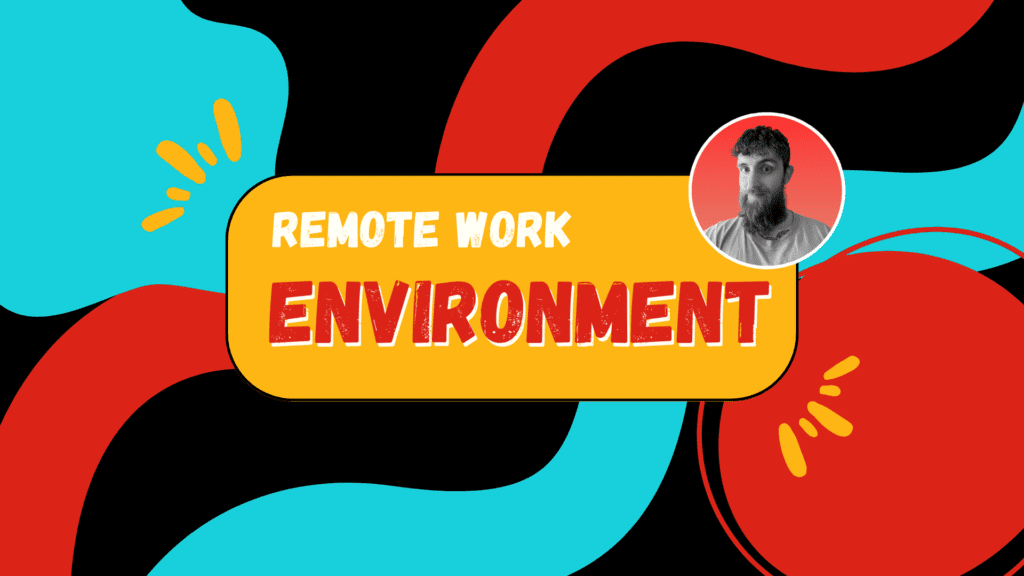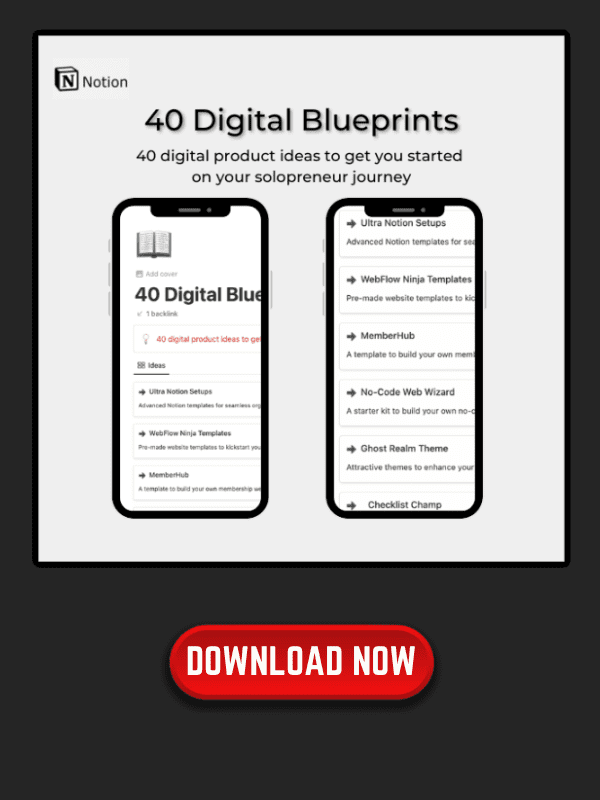Remote work has become increasingly popular in recent years, and most recently in the last couple of years with what happened in the world, it has become more necessary than ever. If you’re new to remote work, it can be challenging to navigate the ins and outs of this work style. But fear not, as we have created the ultimate guide to remote work to help you understand and succeed in this work style.
This guide will cover everything from the evolution of remote work to the benefits and challenges of working remotely. We’ll dive into creating a conducive remote work environment, the tools you’ll need, and best practices for building and managing remote teams. We’ll also discuss the future of remote work, remote jobs, and frequently asked questions. With this guide, you’ll have all the information you need to thrive in the world of remote work.
- Remote work has become increasingly popular and necessary in recent times, and this guide will help you navigate this work style.
- The guide covers everything from the evolution of remote work to best practices for building and managing remote teams.
- With this guide, you’ll have all the information you need to succeed in the world of remote work.
Table of Contents
The Evolution of Remote Work

Remote work has been around for decades, but it was not until the COVID-19 pandemic that it became a mainstream work style. The pandemic forced companies to adopt remote work as a way to keep their businesses running while keeping their employees safe. As a result, remote work has become more prevalent than ever before.
Before the pandemic, remote work was primarily associated with telecommuting. Telecommuting is a work arrangement where employees work from home or another location away from the office. This work style was popular among knowledge workers who could perform their work using a computer and an internet connection.
However, the pandemic has accelerated the adoption of remote work beyond telecommuting. Today, remote work refers to any work arrangement where employees work outside of a centralized office location. This includes fully remote teams, hybrid teams, and distributed teams.
The global workforce has also played a significant role in the evolution of remote work. The rise of the internet and communication technologies has made it easier for companies to hire employees from anywhere in the world. This has led to the emergence of a global workforce, where companies can tap into talent from different countries and cultures.
The American workforce has also experienced significant changes due to the evolution of remote work. According to a recent study, 1 in 4 Americans will be working remotely in 2024. This represents a significant shift in the traditional American work style, where employees would commute to a centralized office location.
ℹ️ Remember
In summary, the evolution of remote work has been driven by various factors, including the COVID-19 pandemic, the rise of communication technologies, the emergence of a global workforce, and changes in the American work style. As remote work continues to evolve, it is essential to understand the different work styles and how they can benefit both employees and employers.
Understanding Remote Work

Remote work is a type of work that is performed outside of a traditional office setting. It allows you to work from home, a coworking space, or any other location that suits your needs. Remote work is also called telecommuting, virtual work, and working from home.
Types of Remote Work
There are different types of remote work, including fully remote, hybrid work, and work from home (WFH).
Fully remote: When a company doesn’t have any central offices, and everyone works from home, on the road, or from office spaces, you have a fully remote team. This setup can have challenges, but it also has its perks.
Hybrid work: Hybrid work is a combination of remote and in-person work. In this setup, employees have the flexibility to work from home or come into the office as needed.
Work from home (WFH): Work from home is a type of remote work where you work from your home office. This type of remote work has become increasingly popular in recent years, especially since the COVID-19 pandemic.
Remote Work Vs Traditional Work
Remote Work
You have more flexibility in terms of where and when you work.
|
Traditional Work
You have to work from the office during set hours.
|
ℹ️ Remember
In summary, remote work is a type of work that allows you to work from home, a coworking space, or any other location that suits your needs. There are different types of remote work, including fully remote, hybrid work, and work from home (WFH). Remote work differs from traditional work in several ways, including flexibility, commuting, work environment, distractions, and self-discipline.
You may also like:
Remote Work Statistics: 20 Insights into the Future of Remote Work
Benefits of Remote Work and Work from Home

Remote work has become increasingly popular in recent years, and for good reason. There are many benefits of remote work for both employees and employers. In this section, we will explore some of these benefits.
For Employees
One of the most significant benefits of remote work is flexibility. When you work remotely, you have the freedom to work from anywhere, at any time. This flexibility can be especially beneficial for those who have other commitments, such as caring for children or elderly relatives.
Remote work also allows for a better work-life balance. Without the need to commute to an office, you can save time and reduce stress. This extra time can be used for personal pursuits, such as hobbies or spending time with loved ones.
Another advantage of remote work is access to a wider talent pool. When companies allow remote work, they are not limited to hiring employees who live in a specific geographic location. This means that they can hire the best talent from anywhere in the world.
For Employers
Remote work can also benefit employers in many ways. One of the most significant advantages is increased employee satisfaction. When employees have the flexibility to work remotely, they are often more satisfied with their jobs. This can lead to increased productivity, better retention rates, and lower turnover.
Remote work can also save companies money. Without the need for a physical office space, companies can reduce their overhead costs, such as rent, utilities, and office supplies. This can be especially beneficial for startups and small businesses that are looking to reduce their expenses.
In conclusion, remote work has many benefits for both employees and employers. From increased flexibility and better work-life balance to access to a wider talent pool and increased employee satisfaction, remote work is a win-win situation for everyone involved.

5 Lucrative Work From Home Hustles to Boost Your Income in 2023
Check out this article on lucrative work from home side hustles to bring in the money.
Challenges of Remote Work

Working remotely can be a great opportunity for many people, but it also comes with its own set of challenges. Here are some of the most common challenges you may face while working remotely.
Isolation and Loneliness
When you work remotely, you may find yourself feeling isolated and lonely. You don’t have the same opportunities to interact with your coworkers and build relationships with them. It’s important to make an effort to connect with your coworkers, even if it’s just through video calls or instant messaging.
To combat loneliness, you can also try joining online communities or groups related to your industry or interests. These can provide a sense of connection and community that you may be missing while working remotely.
Distractions and Maintaining Focus
One of the biggest challenges of working remotely is staying focused and avoiding distractions. When you’re working from home, it’s easy to get distracted by household chores, social media, or other distractions…aka kids.
To maintain focus, it’s important to set clear boundaries for yourself and your workspace. Create a designated workspace that is free from distractions and set specific work hours for yourself. You can also use tools like time-tracking apps or productivity apps to help you stay on track.
Communication and Collaboration
When you’re not working in the same physical space as your coworkers, communication and collaboration can be a challenge. It’s important to establish clear communication channels and protocols with your team, such as regular check-ins or daily stand-up meetings.
You can also use collaboration tools like project management software or video conferencing tools to help facilitate communication and collaboration. However, it’s important to be mindful of “Zoom fatigue” and other challenges that can arise from too much screen time and virtual communication.
ℹ️ Remember
Overall, working remotely can be challenging, but with the right strategies and tools, you can overcome these challenges and enjoy the benefits of remote work.
Creating a Conducive Remote Work Environment

As you transition to remote work, it’s important to create a conducive environment that allows you to be productive and focused. This means setting up a home office, establishing work-life boundaries, and maintaining a healthy mindset.
Setting Up a Home Office
Having a dedicated workspace can help you stay organized and focused. Your home office should be comfortable, quiet, and well-lit. Here are some tips to help you set up your home office:
- Choose a space with natural light and good ventilation.
- Invest in a comfortable chair and desk.
- Keep your workspace clutter-free and organized.
- Use noise-cancelling headphones or a white noise machine to block out distractions.
- Make sure your internet connection is reliable and fast.
Establishing Work-Life Boundaries
One of the biggest challenges of remote work is maintaining a healthy work-life balance. Here are some tips to help you establish boundaries between work and home life:
- Set a schedule and stick to it. This will help you stay focused during work hours and avoid burnout.
- Communicate your schedule to your family and roommates so they know when you’re working.
- Create a routine that helps you transition from work to home life. This could be something as simple as going for a walk or doing a quick workout.
- Turn off notifications on your phone and computer outside of work hours.
Maintaining a Healthy Mindset
Remote work can be isolating and stressful, so it’s important to prioritize your mental health. Here are some tips to help you maintain a healthy mindset:
- Take breaks throughout the day to stretch, meditate, or go for a walk.
- Stay connected with colleagues and friends through video calls or messaging apps.
- Set realistic goals and prioritize your tasks to avoid feeling overwhelmed.
- Practice self-care activities like journaling, reading, or taking a bath.
By setting up a home office, establishing work-life boundaries, and maintaining a healthy mindset, you can create a conducive remote work environment that allows you to be productive and focused.
Tools for Remote Work

Remote work requires the use of various tools to ensure effective communication, productivity, and collaboration. Here are some essential tools you need to have in your remote work arsenal:
Communication Tools
Effective communication is key to successful remote work. You need to be able to communicate with your team members, clients, and other stakeholders. Some of the essential communication tools you need to have include
:
Emails: Email is a reliable way to communicate with your team members and clients. It allows you to send messages, share files, and receive feedback.
Video Conferencing: Video conferencing tools like Zoom and Google Meet allow you to have face-to-face meetings with your team members and clients. They also allow you to share your screen, record meetings, and collaborate in real-time.
Productivity Tools
Remote work requires a high level of productivity. You need to be able to manage your time effectively and stay focused. Some of the essential productivity tools you need to have include:
Time Management Tools: Time management tools like Trello and Asana allow you to manage your tasks, set deadlines, and track your progress.
Focus Tools: Focus tools like Forest and Freedom allow you to block distracting websites and apps, helping you stay focused and productive.
Collaboration Tools
Collaboration is crucial to successful remote work. You need to be able to work together with your team members on projects and assignments. Some of the essential collaboration tools you need to have include:
File Sharing Tools: File sharing tools like Dropbox and Google Drive allow you to share files with your team members and clients.
Project Management Tools: Project management tools like Basecamp and Monday allow you to manage your projects, assign tasks, and track progress.
ℹ️ Remember
In summary, communication, productivity, and collaboration tools are essential for remote work. By using these tools, you can stay connected with your team members, manage your time effectively, and work together on projects and assignments.
Building and Managing Remote Teams

As remote work becomes more prevalent, building and managing remote teams has become a crucial skill for managers. Here are some tips on how to build and manage remote teams effectively.
Hiring and Onboarding
When building a remote team, it’s important to hire the right people. Look for candidates who have experience working remotely, are self-motivated, and have excellent communication skills. During the onboarding process, make sure to provide remote-specific training and resources, such as guidelines for communication, tools for collaboration, and best practices for time management.
Maintaining Company Culture
Maintaining company culture is essential for remote teams. Without face-to-face interactions, it can be challenging to create a sense of community and belonging. To maintain company culture, consider hosting virtual team-building activities, such as online games or video calls. Encourage team members to share personal stories and interests to build connections and foster a sense of belonging.
Ensuring Accountability and Trust
Accountability and trust are crucial for remote teams. To ensure accountability, set clear expectations and goals for each team member and establish regular check-ins to monitor progress. Use project management tools to track progress and ensure everyone is on the same page. To build trust, encourage open communication and transparency.
Encourage team members to share their thoughts and concerns openly and honestly, and be transparent about company goals and decisions.
ℹ️ Remember
In summary, building and managing remote teams requires specific skills and strategies. By hiring the right people, maintaining company culture, and ensuring accountability and trust, you can build a successful remote team that is productive, engaged, and connected.
Best Practices for Remote Work

When working remotely, it’s important to establish best practices to ensure productivity and success. Here are some tips to help you stay focused and engaged while working from home.
Establish Routines
One of the biggest challenges of remote work is maintaining a work-life balance. To avoid burnout, it’s important to establish routines to help you stay organized and focused.
Set a schedule for yourself and stick to it. This will help you avoid distractions and ensure that you’re able to complete your work on time.
Stay Focused
Working from home can be distracting, especially if you have children or other responsibilities. To stay focused, create a designated workspace that is free from distractions.
This will help you stay on task and avoid interruptions. Additionally, consider using time management tools, such as the Pomodoro Technique, to help you stay focused and productive throughout the day.
Practice Effective Communication
Communication is key when working remotely. To ensure that you’re able to collaborate effectively with your team, make sure that you have the right tools in place. This may include video conferencing software, instant messaging tools, and project management software.
Additionally, make sure that you’re communicating regularly with your team to ensure that everyone is on the same page.
Embrace Best Practices
Finally, it’s important to embrace best practices for remote work. This may include setting boundaries between work and home life, taking breaks throughout the day, and staying organized. By following these best practices, you can ensure that you’re able to work effectively and efficiently from home.
The Future of Remote Work

Remote work has been on the rise for several years now, and the COVID-19 pandemic has only accelerated its growth. As we move into the future, remote work is expected to become even more prevalent. Here are some trends that you can expect to see in the future of remote work:
Digital Nomads
Digital nomads are individuals who work remotely while traveling the world. This trend has been growing in popularity in recent years and is expected to continue to grow. As more companies embrace remote work, it will become easier for digital nomads to find work opportunities. This trend will also lead to an increase in co-working spaces and other facilities that cater to digital nomads.
Diversity
Remote work has the potential to increase diversity in the workplace. By allowing individuals to work from anywhere, companies can tap into a wider pool of talent. This can lead to more diverse teams and a more inclusive workplace culture. As remote work becomes more prevalent, it will be important for companies to prioritize diversity and inclusion.
Successful Remote Companies
There are already many successful remote companies, and this trend is expected to continue. These companies have shown that remote work can be just as effective as traditional work arrangements. As more companies embrace remote work, we can expect to see more successful remote companies emerge.
Technology
Technology will continue to play a major role in the future of remote work. As remote work becomes more prevalent, we can expect to see more tools and platforms designed specifically for remote teams. These tools will help to facilitate communication, collaboration, and productivity.
ℹ️ Remember
In conclusion, the future of remote work looks bright. Digital nomads, diversity, successful remote companies, and technology will all play a major role in shaping the future of work. As more companies embrace remote work, it will become easier for individuals to work from anywhere and for companies to tap into a wider pool of talent.
Digital Nomad Jobs

As a digital nomad, you have the freedom to work from anywhere in the world. But what kind of jobs can you do that allow you to work remotely and still make a decent living? Here are some digital nomad job options to consider:
Freelance Writing and Editing
If you have a way with words, freelance writing and editing can be a great way to make money as a digital nomad. You can write for blogs, websites, and even print magazines. Many companies also need editors to review and revise content. Freelance writing and editing jobs can be found on platforms like Upwork, Freelancer, and Fiverr.
Web Development and Design
Web development and design are in high demand, and many companies are willing to hire remote workers for these positions. If you have experience with HTML, CSS, and JavaScript, you can work as a web developer. If you have an eye for design, you can work as a web designer. Platforms like Toptal and Upwork are great places to find web development and design jobs.
Digital Marketing
Digital marketing is another field that is growing rapidly, and many companies are looking for remote workers to help with their marketing efforts. If you have experience with social media, email marketing, SEO, or PPC advertising, you can work as a digital marketer. You can find digital marketing jobs on platforms like Indeed, LinkedIn, and Upwork.
Virtual Assistance
Virtual assistance is a great option for those who enjoy administrative tasks. As a virtual assistant, you can help with tasks like scheduling appointments, managing emails, and bookkeeping. You can find virtual assistant jobs on platforms like Virtual Assistant Jobs and Upwork.
Teaching and Tutoring
If you have a teaching degree or experience, you can work as an online teacher or tutor. There are many online platforms that connect teachers with students, such as VIPKid and Teachaway. You can also offer your services as a tutor on platforms like Chegg and TutorMe.
Translation
If you are bilingual or multilingual, you can work as a translator. There are many companies that need translators for documents, websites, and even customer service. You can find translation jobs on platforms like TranslatorsCafe and Upwork.
Remote customer service
Remote customer service jobs are also in high demand, as many companies are looking for customer service representatives who can work from home. These jobs typically require excellent communication skills and the ability to handle customer inquiries and complaints effectively.
ℹ️ Remember
In conclusion, there are many digital nomad job options available for those who want to work remotely. Whether you have experience in writing, web development, digital marketing, virtual assistance, teaching, or translation, there are opportunities out there for you.
High Paying Remote Jobs

If you’re looking for high-paying remote jobs, you’re in luck. The rise of remote work has opened up a world of opportunities for professionals across various industries. Here are some of the top high-paying remote jobs that you can consider:
1. Software Developer
With the increasing demand for software developers, it’s no surprise that this is one of the highest-paying remote jobs. As a software developer, you can expect to earn a median salary of $110,140 per year, according to the Bureau of Labor Statistics (BLS). In addition to a high salary, software developers also enjoy the flexibility of working remotely.
2. Sales Director
Sales directors are responsible for developing and implementing sales strategies to achieve business objectives. This is a high-pressure job, but it comes with a high salary. According to Glassdoor, the average base salary for a sales director is $142,384 per year. As a remote sales director, you can work from anywhere in the world and still earn a high salary.
3. Data Scientist
Data science is one of the hottest fields right now, and it’s also one of the highest-paying remote jobs. As a data scientist, you’ll be responsible for analyzing and interpreting complex data sets to help businesses make informed decisions. According to the BLS, the median annual salary for data scientists is $98,230. With the rise of remote work, many data scientists are now able to work from anywhere in the world.
4. Marketing Manager
Marketing managers are responsible for developing and implementing marketing strategies to promote products or services. This is a high-pressure job, but it comes with a high salary. According to Glassdoor, the average base salary for a marketing manager is $96,994 per year. As a remote marketing manager, you can work from anywhere in the world and still earn a high salary.
5. Project Manager
Project managers are responsible for overseeing projects from start to finish. This includes planning, organizing, and managing resources to ensure that projects are completed on time and within budget. According to the BLS, the median annual salary for project managers is $76,240. As a remote project manager, you can work from anywhere in the world and still earn a high salary.
In conclusion, there are plenty of high-paying remote jobs available across various industries. Whether you’re a software developer, sales director, data scientist, marketing manager, or project manager, you can work from anywhere in the world and still earn a high salary.

7 Remote Jobs for Beginners That Can Earn You Thousands (2023)
If you have got this far, read this post to find remote job hiring now to start earning thousands
Extra Tools & Resources
An informative onoine guide for founders looking to create and build a remote work environment by Hubstaff co-founder Dave Nevogt
2. Basecamp - REMOTE: Office Not Required
A great remote working book to buy on amazon. Lots of valuable insights and something that stood out to me was how managers worry that their workers may not be working hard enough but in reality they’re working too hard and the managers will not be able to notice burnout
3. Zapier - The Ultimate Guide to Remote Work
A no-code tool close to my heart, Zapier and their employees know about remote work and this guide contains real-life examples to learn from. Read here
4. 6Q blog - Ultimate List of 100+ Tools for Managing a Remote Team
The title says it all and such a great resource for managing a remote team
5. Notion Productivity Powerhouse
Need a place to keep yourself super organised and boost your productivity level sky high, then my digital product is what you need
6. Pomodoro Timer
This has been a life saver for me. A physical Pomodoro timer to set 25 minutes of productive work followed by 5 minutes chill…rinse and repeat. Oh my digital product above has one in the Notion product
7. Headspace
We all need that calmness in our life and Headspace is the answer.
Remote work can be stressful with the transition and then the workload and thinking you have to work harder.
Frequently Asked Questions
Managing a remote team can be challenging, but there are several best practices you can follow to ensure your team stays productive and engaged. First, establish clear communication channels and guidelines for your team to follow. This can include regular check-ins, virtual meetings, and clear expectations for response times. Additionally, make sure to provide your team with the necessary tools and resources to do their job effectively. Finally, trust your team to do their work and avoid micromanaging.
Onboarding remote employees requires a different approach than onboarding in-person employees. It’s important to establish clear communication from the beginning and provide your new hire with all the necessary tools and resources to do their job effectively. Additionally, make sure to schedule regular check-ins and provide opportunities for your new hire to connect with their team members. Finally, make sure to set clear expectations for your new hire and provide them with a roadmap for success.
Working remotely can offer numerous advantages, such as increased flexibility, improved work-life balance, and reduced commute times. However, there are also potential disadvantages, such as feelings of isolation, difficulty separating work and personal life, and potential distractions at home. It’s important to weigh these factors and determine if working remotely is the right fit for you.
Working remotely can present several challenges, such as feelings of isolation, difficulty staying motivated, and potential distractions at home. To overcome these challenges, establish a routine and stick to it, set clear boundaries between work and personal life, and make sure to take breaks throughout the day to stay refreshed and focused. Additionally, make an effort to stay connected with your team and colleagues through regular check-ins and virtual meetings.
To stay productive while working remotely, establish a routine and stick to it, set clear goals for yourself, and eliminate potential distractions. Additionally, make sure to take breaks throughout the day to stay refreshed and focused, and establish clear boundaries between work and personal life.
Maintaining a work-life balance while working remotely can be challenging, but there are several strategies you can use to achieve this balance. Establish clear boundaries between work and personal life, such as setting specific work hours and taking breaks throughout the day. Additionally, make sure to prioritize self-care activities, such as exercise and spending time with loved ones. Finally, make an effort to disconnect from work at the end of the day and avoid checking emails or taking work calls outside of work hours.




